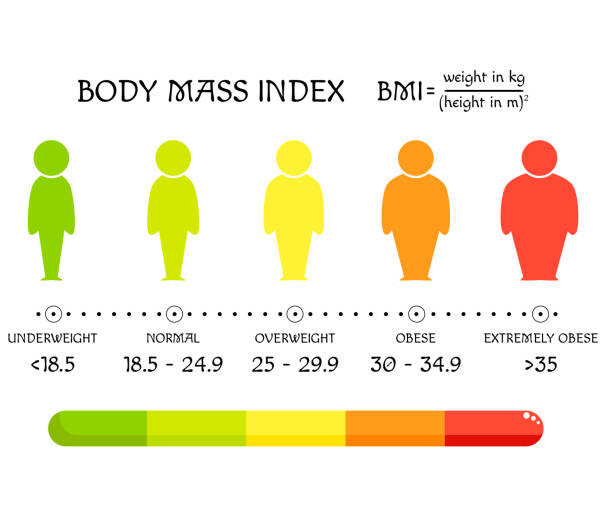
Obesity is a medical condition in which excess body fat has accumulated to the extent that it may have a negative impact on health.
Although there are genetic, behavioral and hormonal influences on body weight, obesity occurs when you take in more calories than you burn through exercise and normal daily activities. Your body stores these excess calories as fat.Obesity is diagnosed when your body mass index (BMI) is 30 or higher. Your body mass index is calculated by dividing your weight in kilograms (kg) by your height in meters (m) squared.

| BMI | Weight Status |
| < 18.5 | Underweight |
| 18.5 – 24.9 | Normal |
| 25.0 – 29.9 | Overweight |
| 30.0 – 34.9 | Obese (Class I) |
| 35.0 -39.9 | Obese (Class II) |
| > 40 | Morbid Obesity (Class III) |
Risk Factors
- Genetics. Your genes may affect the amount of body fat you store, and where that fat is distributed. Genetics may also play a role in how efficiently your body converts food into energy and how your body burns calories during exercise.
- Family lifestyle. Obesity tends to run in families. That’s not just because of genetics. Family members tend to share similar eating and activity habits.
- Inactivity. With a sedentary lifestyle, you can easily take in more calories every day than you burn through routine daily activities.
- Unhealthy diet. A diet that’s high in calories, full of fast food, and laden with high-calorie beverages and oversized portions contributes to weight gain.
- Medical problems. In some people, obesity can be traced to a medical cause, such as Prader-Willi syndrome or Cushing’s syndrome. Medical problems, such as arthritis, also can lead to decreased activity, which may result in weight gain.
- Certain medications. Some medications can cause weight gain. These include some antidepressants, anti-seizure drugs, diabetes drugs, antipsychotics, steroids and beta blockers.
- Age. As you age, hormonal changes and a less active lifestyle increase your risk of obesity. In addition, the amount of muscle in your body decreases with age. This lower muscle mass leads to a decrease in metabolism. These changes also reduce calorie needs, and can make it harder to keep off excess weight. If you don’t consciously control what you eat and become more physically active as you age, you’ll likely gain weight.
- Pregnancy. During pregnancy, a woman’s weight necessarily increases. Some women find this weight difficult to lose after the baby is born. This weight gain may contribute to the development of obesity.
- Lack of sleep. Not getting enough sleep can cause changes in hormones that increase your appetite, which can contribute to weight gain.
Complications
Obese individuals are more likely to develop health problems, including:
- High cholesterol
- Type 2 diabetes
- High blood pressure
- Metabolic syndrome
- Heart disease
- Stroke
- Cancer
- Breathing disorders
- Sleep apnea
- Gallbladder disease
- Infertility
- Irregular periods
- Erectile dysfunction
- Liver disease
- Osteoarthritis
Treatments
- Dietary changes. Healthy eating habits and calorie reduction are vital to overcoming obesity. To lose weight, reduce intake to 1200 ~ 1500 calories for women and 1500 ~ 1800 for men.
- Exercise and activity. Increased physical activity or exercise is an essential part of obesity treatment. To lose weight, you may need to exercise 300 minutes or more a week. If walking is your preferred exercise, wear a pedometer to track how many steps you actually take over the course of a day. Aim for 10,000 steps a day.
- Use apps. If you own a smartphone, you can download apps like MyFitnessPal and Googlefit to help track your calories and steps respectively.
- Prescription weight-loss medication. Losing weight requires a healthy diet and regular exercise. But in certain situations, prescription weightloss medication may help. Commonly prescribed weight-loss medications include orlistat (Xenical), lorcaserin (Belviq), phentermine and topiramate (Qsymia), buproprion and naltrexone (Contrave), and liraglutide (Saxenda).
- Weight-loss surgery. In some cases, weight-loss surgery, also called bariatric surgery, is an option. Weight-loss surgery limits the amount of food you’re able to comfortably eat or decreases the absorption of food and calories or both.
Thanks For Reading
Don’t forget to subscribe to get the latest updates. If you have any questions or suggestions, leave a comment below or contact me here.



